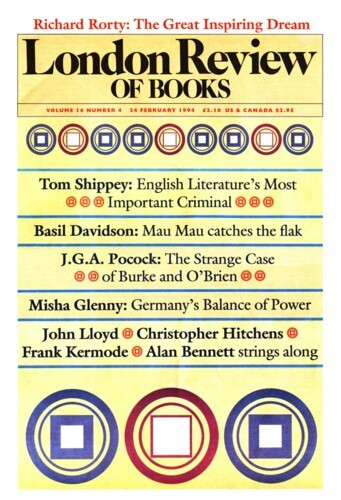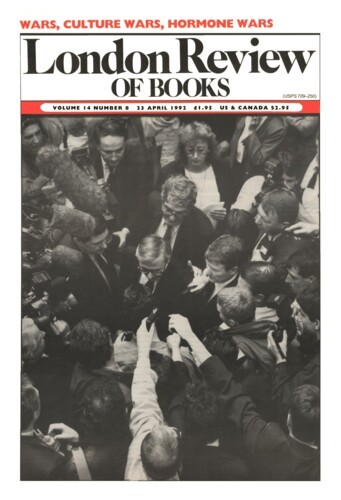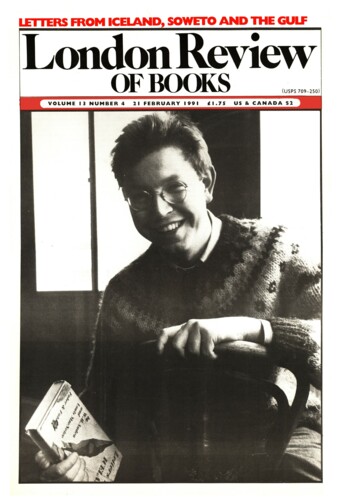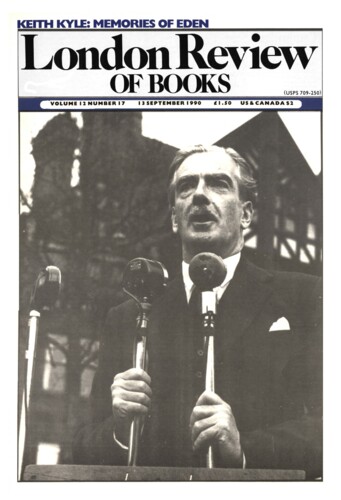Boris Ford
Boris Ford an emeritus professor of education at the University of Bristol, is the editor of the New Pelican Guide to English Literature and of the Cambridge Guide to the Arts in Britain. He is now editing a series of books on the arts and civilisation of the Western world.
Manly Decency
23 April 1992
Manly Decency
Boris Ford, 23 April 1992
To arrive in Cambridge to study English literature with F.R. Leavis in the mid-Thirties was an act, on my part, of unconsciously astute timing. Since coming to Downing in 1932 as Director of Studies in English, he had written New Bearings in English Poetry and Revaluation, among other books, and had helped to launch Scrutiny. His reputation for iconoclastic criticism, his demotion of Milton compared with Dryden, Pope, and the ‘Line of Wit’, or of Shelley compared with Wordsworth and Keats, underpinned by his close reading of ‘the words on the page’, had linked his name with Richards and Empson, two other Cambridge figures whose work had blown gusts of fresh air across the face of English literary studies.
Maerdy Diary: The last pit closes
Boris Ford, 21 February 1991
As the miners’ lamps at Maerdy, the last of the working pits in the Rhondda, are extinguished for the third and no doubt the last time, a short chapter in my revolutionary past comes back into sharp focus. It was at the end of my first year at Cambridge, in 1937, that I accepted a suggestion from Kay Garland, a fellow student, that we should go off to the Gower Peninsula for a fortnight and help run an inter-universities’ camp for unemployed miners from South Wales. There was a great deal of unemployment in the mining community, especially in the Rhondda, where many pits had been closed down in the depression of the early Thirties. And so, for card-carrying student comrades like ourselves, going off to help unemployed miners in South Wales seemed at least a modest, if feeble alternative to going off to fight with the embattled miners in Spain.
The Great Mary
13 September 1990
Pieces about Boris Ford in the LRB
Seeing through Fuller
Nicholas Penny, 30 March 1989
It has been respectable for some while now to admit to being bored by the huge, flat, ‘pure’ abstracts on the white walls of the museums of modern art. And yet non-representational...
Textual Harassment
Claude Rawson, 5 April 1984
In a recent review in this paper, Edward Said used the word ‘narrative’ about thirty times. This might have seemed a lot even in the present state of litcritspeak, and even in an...
Moments
Marilyn Butler, 2 September 1982
It is a current preoccupation on the Left, more fashionable now among many students of English than Post-Structuralism, that English Literature as an academic subject is a conspiracy of the...
Read anywhere with the London Review of Books app, available now from the App Store for Apple devices, Google Play for Android devices and Amazon for your Kindle Fire.
Sign up to our newsletter
For highlights from the latest issue, our archive and the blog, as well as news, events and exclusive promotions.




